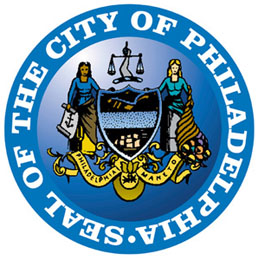This is a guest post by Bill Green, City of Philadelphia Councilman-at-Large, as part of our Guest Contributor Week. Want to have an op-ed or feature you’ve written to appear on TP, now or in the future? Drop us a line.
 Like many cities, Philadelphia has faced staggering fiscal challenges in recent years. As fixed expenses continue to increase while tax revenues stagnate, the City has been forced to find ways to close record budget deficits without further burdening taxpayers or slashing core public services. Balancing the City budget, however, is not simply a choice between cutting services or increasing taxes. Improved management of scarce resources and a focus on improving productivity through technology must also be essential parts of our budget-balancing strategy going forward.
Like many cities, Philadelphia has faced staggering fiscal challenges in recent years. As fixed expenses continue to increase while tax revenues stagnate, the City has been forced to find ways to close record budget deficits without further burdening taxpayers or slashing core public services. Balancing the City budget, however, is not simply a choice between cutting services or increasing taxes. Improved management of scarce resources and a focus on improving productivity through technology must also be essential parts of our budget-balancing strategy going forward.
For example, a serious commitment to “paperless government” could save the City hundreds of millions of dollars per year, freeing up additional resources to support key, citizen-level services.
At the most simple level, “paperless government” involves minimizing the use of paper in City government. Because every dollar spent on paper can be linked to $13-31 in secondary costs (storage, printing, postage, etc.), the savings from reducing paper use are amplified many times over.
More broadly, “paperless government” lets City employees shift their focus from pushing paperwork to more substantive work serving citizens, resulting in better use of City resources, fewer mistakes, and faster services. This effort is underway in some departments: the Pension Board has halved its application processing time, increased counseling session efficiency, and significantly reduced its staffing needs by using imaging technology. Replicating this type of initiative across City government will enable us to reduce costs, increase efficiency, and improve service quality.
I envision a “Paperless Government” that:
- Enables citizens and employees to conduct most City business online and deploys technology to speed service delivery (e.g., automated approval of routine permit applications);
- provides self-service information kiosks, similar to bank ATMs, throughout the City, thereby eliminating duplicative data entry, shrinking lines, and speeding service delivery; and
- Utilizes the existing city-wide WiFi network and equips employees working in the field with hand-held PDAs, increasing productivity by up to 30% based on faster data collection, instant data transmission, and no need for subsequent data entry.
 The business case for this initiative is compelling: relatively modest initial investments will be paid off quickly through efficiency savings, yielding significant returns for years to come. In the private sector, companies need to make 2-4% productivity gains per year to maintain their competitiveness – we should hold ourselves to the same standard.
The business case for this initiative is compelling: relatively modest initial investments will be paid off quickly through efficiency savings, yielding significant returns for years to come. In the private sector, companies need to make 2-4% productivity gains per year to maintain their competitiveness – we should hold ourselves to the same standard.
In addition to improving efficiency, technology should also be harnessed to hold City government accountable to the public. Philadelphia should adopt an open data policy similar to many large cities and require every department and agency to post its raw data files on a central website that is easily accessible to the public. Access to financial data should also be improved so taxpayers and policymakers know exactly how public funds are used, empowering citizens to better understand how their government works and hold their elected officials accountable for the decisions they make.
Philadelphia’s public investments in technology should also be made accessible to local entrepreneurs. The City is currently planning $125 million in technology investment over the next 5 years. City officials should post RFPs for these investments in small enough chunks for small and medium-sized Philadelphia tech firms to bid on, rather than in broad RFPs only accessible to a handful of major software conglomerates. This way, both taxpayers and our growing tech economy will benefit from Philadelphia’s adoption of more efficient technologies.
The smart use of technology can change the culture of Philadelphia government – cutting the cut fat while providing services to citizens better, faster, and cheaper – and provides one of the best routes out of our current fiscal crisis and toward long-term financial stability.






